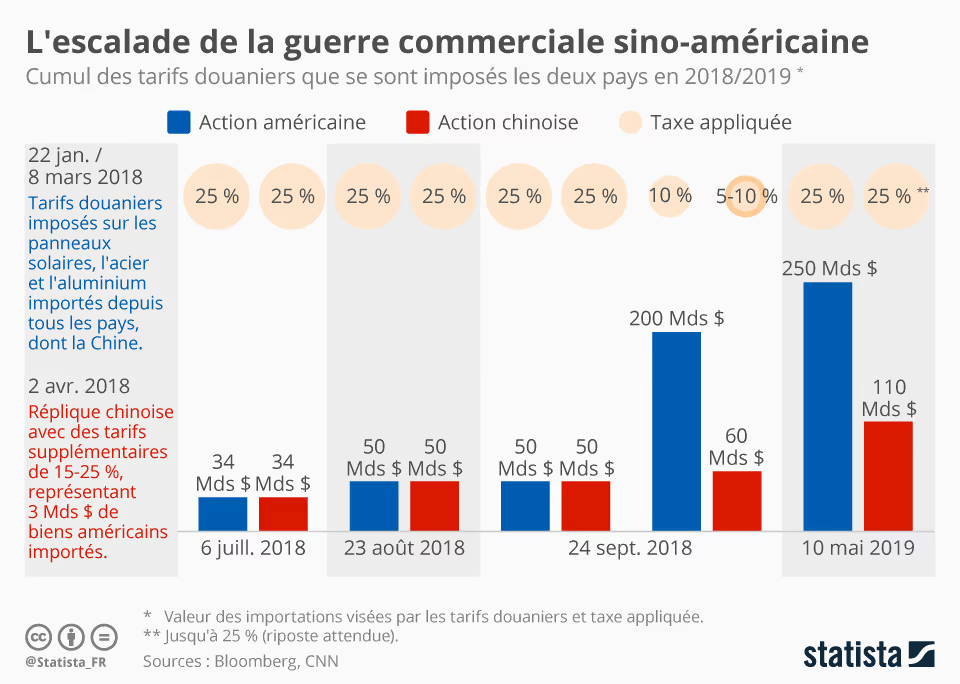
As tensions between China and the United States take an increasingly direct turn, a new world order is emerging. The current configuration escapes the old bipolar patterns. The United States is trying to slow the rise of Beijing, while Europe is still looking for its place.
A changing bipolar world
The cold war of the 20th century was characterized by the absence of direct armed clashes, made possible by nuclear deterrence. In 1962, however, the Cuban crisis nearly precipitated a nuclear conflict between Washington and Moscow.
The China—United States trajectory
Today, the China-United States trajectory evokes a New Cold War, but different from that of the post-war period. As explained Ali Laidi, researcher at EPGE and journalist at France 24 on our show The Circle, “It is not said that a war will never happen with China”.
.jpg)
The bipolar relationship between the United States and the USSR has disappeared. Now, the divide opposes the West, led by Washington, to the Beijing-Moscow axis.
The role of non-aligned actors
One third non-aligned actor is also essential: Brazil, India, India, Argentina, Argentina, South Africa or even Turkey. These emerging powers navigate between the two blocks according to their own interests.
This new configuration is based as much on political ideologies as on an economic struggle for global hegemony.
An economic war between the United States and China
Since the fall of the USSR, the United States dominated the economy, technology, geopolitics, and the military. But the emergence of China has upset this balance.
US sanctions and tariffs
Faced with this direct competitor, Washington adopted a defensive strategy to maintain its first place in the world. This involves a network of alliances in Asia, a military presence, but also a policy of trade sanctions.
In December 2024, the United States raised tariffs on several strategic Chinese products, between 25% and 50%. On April 8, 2025, the White House announced an even stronger rise. The very next day, Donald Trump confirmed A tax to 125% on certain imports from China.

Technological control and semiconductors
Washington is also banking on technological control. The export of high-performance chips, which are essential for artificial intelligence, is prohibited. The sale of semiconductor manufacturing machines is also restricted. Objective: to curb Chinese innovation.
This method is similar to that of the 1980s against Japan. At the time, Tokyo established itself as a global economic reference with Toyotism. The United States then imposed technological and commercial restrictions, in particular on the automobile, curbing Japanese momentum. But the difference is significant: Japan remained an ally, where China is a strategic rival.
Ali Laidi points out: “Even if the United States has managed to limit the emergence of Japan, the bet seems difficult for Americans to win when it comes to China's ambitions.”
The Chinese Strategy: Imitation, Cunning, and Technological Power
To frighten Washington, Beijing used several levers. The Communist Party of China pretended to respect the rules of free trade, while protecting its national champions.
Economic intelligence and strategic tradition
This ruse is based on economic intelligence. Beijing was inspired by the Japanese model of the 1970-1980s, but also by French and American approaches. While remaining true to its Marxist-Leninist base, China has drawn on its strategic traditions, such as The Art of War.
The result: an increase in power in strategic sectors such as civil nuclear power or artificial intelligence. The design of The flea Kirin illustrates this ability to compete with the great powers.

Xi Jinping's ambitions
Xi Jinping is clearly showing his ambitions. It presents itself as a pragmatic economic partner, ready to trade without political conditions. An approach that seduces many countries, tired of Western democratic injunctions.
According to Ali Laidi, Europe would benefit from drawing inspiration from this apparently weak strategy to relaunch its competitiveness. But, he adds, “the European elites are not ready yet”. In several sectors, know-how has already slipped to China and its workforce.
The economic opening of the West in Beijing
The massive opening of markets to China has upset a pillar of American security. The United States has returned to a clear equation: economic security = national security. The gradual decoupling between their two economies seems inevitable.
The limits of European openness
For its part, Europe has long believed that economic openness would promote democracy. China joined the WTO in 2001 showed the limits of this vision. Chinese researchers are still involved in most European programs today, with the exception of nuclear programs.
Franco-Chinese space cooperation with the satellite SVOM illustrates this openness. A marked contrast with the United States: Since 2011, NASA has banned all collaboration with Beijing.
Europe and economic war: a concept that is still taboo
The European Union was built on a model of peace and free trade. She is still reluctant to use the expression of “economic war”.
On December 12, 2023, during a conference at the CDSE, former Prime Minister Édouard Philippe declared: “I have never been completely convinced by the term economic war.”
The reasons for European scepticism
For Ali Laidi, this reluctance has two origins. On the one hand, liberals and ultra-liberals reject the very idea of economic war, because it would involve direct intervention by states. On the other hand, part of the left sees it as a threat to post-war social gains.
However, according to him, the recognition of this concept would make it possible to defend European socio-cultural models.
He insists:” Only a strategy in Europe can upset an architecture that includes China as the main player. ”.
Towards European economic sovereignty?
Such a change cannot happen overnight. It presupposes first of all an awareness and a training on international issues.
The Covid-19 crisis has acted as a tell-tale. France discovered its massive dependence on the active ingredients of drugs. upto 80% of active pharmaceutical ingredients used in Europe come from China or India. Since then, three billion euros have been invested in biotechnologies. But these efforts remain insufficient: pharmaceutical production is still largely dependent on Asian imports.
Rethinking European strategy
Rethinking the European security strategy also means rethinking its economic sovereignty. Otherwise, Europe will remain dependent on the major powers, at the risk of being marginalized in the new cold war between China and the United States.
To find all our other items, see the complete library of our cybersecurity articles.
As for our programs, from which this article is based, you can check out our YouTube channel.









.avif)